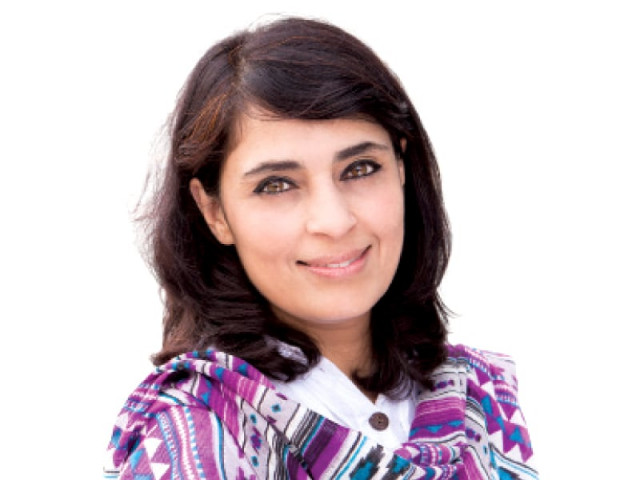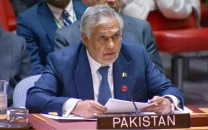Documentary screening: There is a way out of forced marriages says activist
Minallah’s latest film focuses on people who got out.

Documentary screening: There is a way out of forced marriages says activist
Instead of simply re-hashing forced marriages as an unjust practice, Samar Minallah’s latest documentary takes a more nuanced approach towards the issue.
“Poles Apart: Chains do not keep Marriages Together” focuses on individuals who eventually managed to get out. The 32-minute documentary was screened at Kuch Khaas on Wednesday.
“I focused on people who have forged their own paths despite [being forced into forced marriages], so individuals and their families can realise that there is a way out of this ancestral tradition,” Minallah explained.
She also focuses on parents as prospective agents of change: when they realise the detrimental consequences of forced marriages on their children, they will stop perpetuating the tradition.
But that is easier said than done, Minallah confesses. For starters, these communities don’t recognise forced marriages as a vicious practice to begin with.
The documentary was shot in Oslo, Jhelum, Gujrat and Lalamusa. But despite the scale of the project, finding individuals willing to talk on the subject was the hardest part, Minallah said.
The challenge, however, proved to be a blessing in disguise as forced marriage survivors were the only demographic willing to talk freely, giving the documentary its focus.
For instance, Khadija from Jhelum dared to return back to Pakistan after enduring an abusive relationship with her husband for seven years abroad.
Now she teaches driving to young girls in her local area and is an inspiration to them.
The documentary does not restrict itself to just women, adding another layer to the issue by focusing on the impact forced marriages have on men – an aspect that is usually ignored.
In the documentary, Khurram describes his marriage with his cousin. The union ended in heartbreak and abandonment.
He said that everyone talks about the suffering of women.
“Why do they forget that men [can also end up becoming] victims,” he said.
The small auditorium was jam packed, with people engrossed in the short documentary.
A poem by Kishwar Naheed, to show solidarity with Malala Yousafzai, concluded the event.
Zainab, a young girl from Swat, had brought a banner with her saying: “We are all Pakistanis, we are all Malala.”
Published in The Express Tribune, October 12th, 2012.



















COMMENTS
Comments are moderated and generally will be posted if they are on-topic and not abusive.
For more information, please see our Comments FAQ